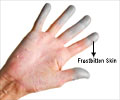EULAR introduces comprehensive non-pharmacological recommendations for SLE and SSc care, emphasizing holistic health and improved quality of life.
- EULAR's new guidelines address non-pharmacological approaches for systemic lupus erythematosus and systemic sclerosis, focusing on individualized patient care
- A multidisciplinary task force, including patients and professionals, crafted the recommendations
- The guidelines emphasize the importance of combining drug and non-drug treatments, promoting holistic patient well-being
Systemic Lupus Erythematosus
Go to source). Systemic sclerosis (SSc), also known as scleroderma, is another autoimmune disease that affects blood vessels, skin, and visceral organs. Although EULAR previously provided recommendations for the care of these two disorders that centered on pharmacological medications, other non-pharmacological approaches may also be appropriate for these individuals to control specific symptoms and consequences. However, these non-drug supportive treatments have not yet been standardized, and they are frequently underutilized in ordinary practice.
EULAR's Integrated Strategy for Systemic Lupus Erythematosus and Systemic Sclerosis Management
A multidisciplinary task force of patient research partners, nurses, and health care professionals from rheumatology, as well as experts in physiotherapy, occupational therapy, psychology, diet, and podiatry, established the new EULAR recommendations. The work was carried out by EULAR's regular operating procedures. The final report, which will be published in the Annals of Rheumatic Diseases in July 2023, is based on two systematic literature evaluations, one on SLE and one on SSc (2✔ ✔Trusted SourceEULAR releases new recommendations for non-pharmacological management of SLE and SSc
Go to source). In total, four overarching principles and twelve recommendations were produced. The principles recognize that non-pharmacological management of both illnesses should be adapted to people's specific needs, expectations, and preferences, and should be based on shared decision-making. This may necessitate one or more interventions and can be administered either alone or as a complement to pharmaceutical treatment; however, non-pharmacological management should not be used in place of pharmaceutical treatment when it is required.
Guided Approaches for Enhanced Quality of Life in SLE and SSc Patients
Individual recommendations are then divided into three groups, beginning with those that apply to both conditions and progressing to sets of unique concerns for each. The overarching goal is to enhance people's health-related quality of life. This involves patient education and self-management assistance, as well as exercise and psychosocial therapies.References:
- Systemic Lupus Erythematosus - (https://pubmed.ncbi.nlm.nih.gov/30571026/)
- EULAR releases new recommendations for non-pharmacological management of SLE and SSc - (https://www.news-medical.net/news/20230807/EULAR-releases-new-recommendations-for-non-pharmacological-management-of-SLE-and-SSc.aspx)
















